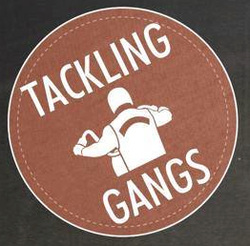
Perceived wisdom seems to be, hammer the gangs and gain electoral advantage.
The latest to do this is Queensland Premier Campbell Newman, who is enacting numerous measures to counter the state’s outlaw clubs or the ‘bikies’ as the Aussies like to call them.
These legislative measures are a rare mix of the serious and the laughable, perhaps best summed up by the name of the newly passed ‘Vicious Lawless Association Disestablishment Act 2013’. When a piece of legislation is given a name like that, you know that politics is playing a big part. George Orwell couldn’t have dreamed it up.
Under this law, if you commit crimes in association with an outlaw club you will be declared a ‘vicious lawless associate’ and get 15 years on top of the sentence given for the crime. In this way you are not being punished for what you do, nor even who you are, but simply for who you associate with.
But that’s not the end. If the offender is an office holder (president, secretary etc) of the outlaw club, on top of the 15 years that is put on the original sentence, they get another 10 years for good measure.
Take a drug crime, for example, that might ordinarily deliver a person a couple of years in prison. Under this legislation, the above offender must serve 27 years.
When Cesare Beccaria developed the philosophical underpinnings of Western justice in the 1700s, he deemed that punishment should be proportionate to the crime. He argued that lopping off a hand for stealing bread was a bit excessive. And while the state of Queensland isn’t proposing to take limbs, it is proposing grossly disproportionate sentences are served in a dedicated biker prison under 23-hour lock up. This is clearly a sharp departure from a long-heralded and protected tenet of civilised criminal justice.
But you don’t have to be committing crimes to be affected. Just associating with a bikie can be enough to see you locked up for a minimum of six months, while a further measure bans club members from owning or working in tattoo studios – and these are set to be widened to include car yards and elements of the security industry.
The right to freely associate and engage in lawful business is a basic principle of democratic societies. But laws like this bring these important philosophical underpinnings under direct attack.
And while these are couched as ‘bikie laws’ few people seem to care much that fundamental rights are being eroded, because it’s only the bikies so who cares? Such a position fails to appreciate the fact that when such laws are on the books they can be used beyond the original intent. In New Zealand we have the example of terrorism laws brought in after 9/11 being used against a rag tag bunch of fantasist idiots in the Ureweras. That was never, ever envisaged when the legislation was passed.
Furthermore, the Queensland laws have some troubling definitional elements and involve a great degree of subjectivity. There is absolutely no hearing or trial before an organisation is deemed criminal: they are simply declared to be such. Of course this means there is no way to mount a defence, which flies in the face of justice and creates a Kafkaesque nightmare. Further still, who is deemed an associate of these groups is most unclear. By way of example, I still keep the company of a number of gangs and gang members. If I did that in Queensland, would I be deemed an ‘associate’? If so, that’s clearly absurd. But chances are I wouldn’t be because I don’t fit the stereotype. And if that’s the case these laws will not be used universally but only against people deemed undesirable by police and prosecutors. You don’t need to be a philosopher to find that rather troubling. Arbitrariness in application of laws should always ring alarm bells.
While we should all be concerned around creeping police and state powers and the erosion of important rights, these fears are sometimes overplayed. My fundamental argument is much more basic than all of that. My point is that the laws are simply unnecessary.
These great powers are not a valid reaction to a grave and pressing threat. Instead they are driven by an over-inflated fear and a wilful lack of understanding by politicians – the same reasons the laws have the majority support of the public.
The outlaw clubs in Australia, as is the case here from time-to-time, have been inflated into something that they are not. Are they troublesome? Yes. Are they a grave threat? No.
This should not be read as a defence of gangs. When such groups or their members commit crimes – like the violent incidents that sparked this legislative onslaught – they will get no sympathy from me. The same applies if they are dealing drugs or undertaking other criminal behaviour but there is plenty of existing legislation to deal with these matters. Plenty. Therefore, when draconian legislation like this is proposed, the greater danger is from the slick and ignorant politicians than from the scruffy and arrogant bikies.
Many people have asked me if laws such as these could come to New Zealand. The answer is yes. Since the lead up to the 1972 national election when Norman Kirk promised to ‘take the bikes off the bikies’ politicians have used gangs to their advantage. Most notably this occurred around the 1996 election when swathes of legislation was drafted and passed, including one provision to stop and search vehicles without a warrant that police had previously asked for twice as a general law enforcement tool and been turned down. When it was couched as a ‘gang law’ parliament gave them the power. I’d be prepared to take a very big bet that since then that law has been used hundreds of times more often on non-gang members than those in gangs.
Once laws are on the books they get used. Furthermore, we very rarely take them back. And this is why we should move with caution and wisdom, two elements politicians are rarely known for.


 RSS Feed
RSS Feed